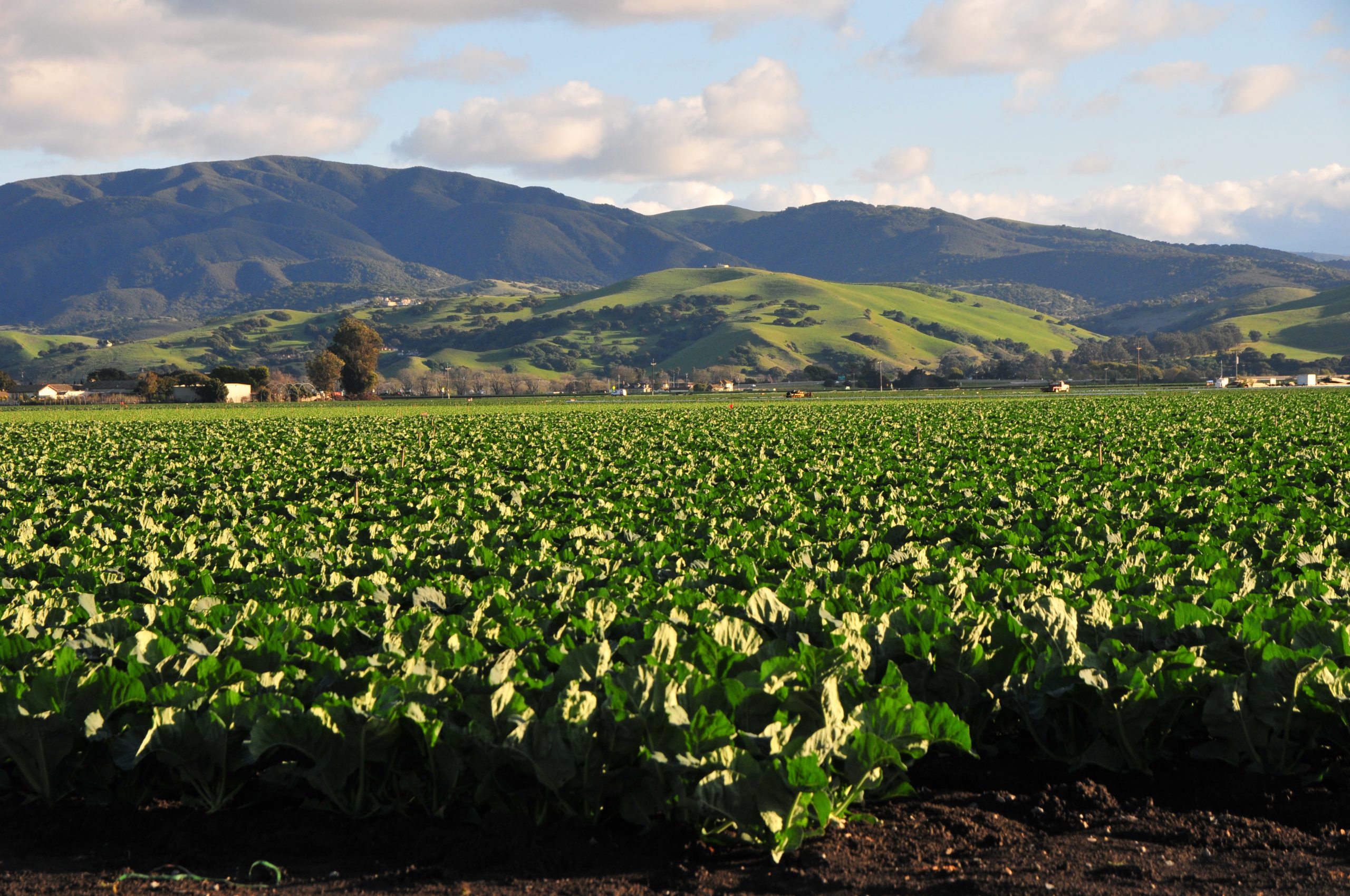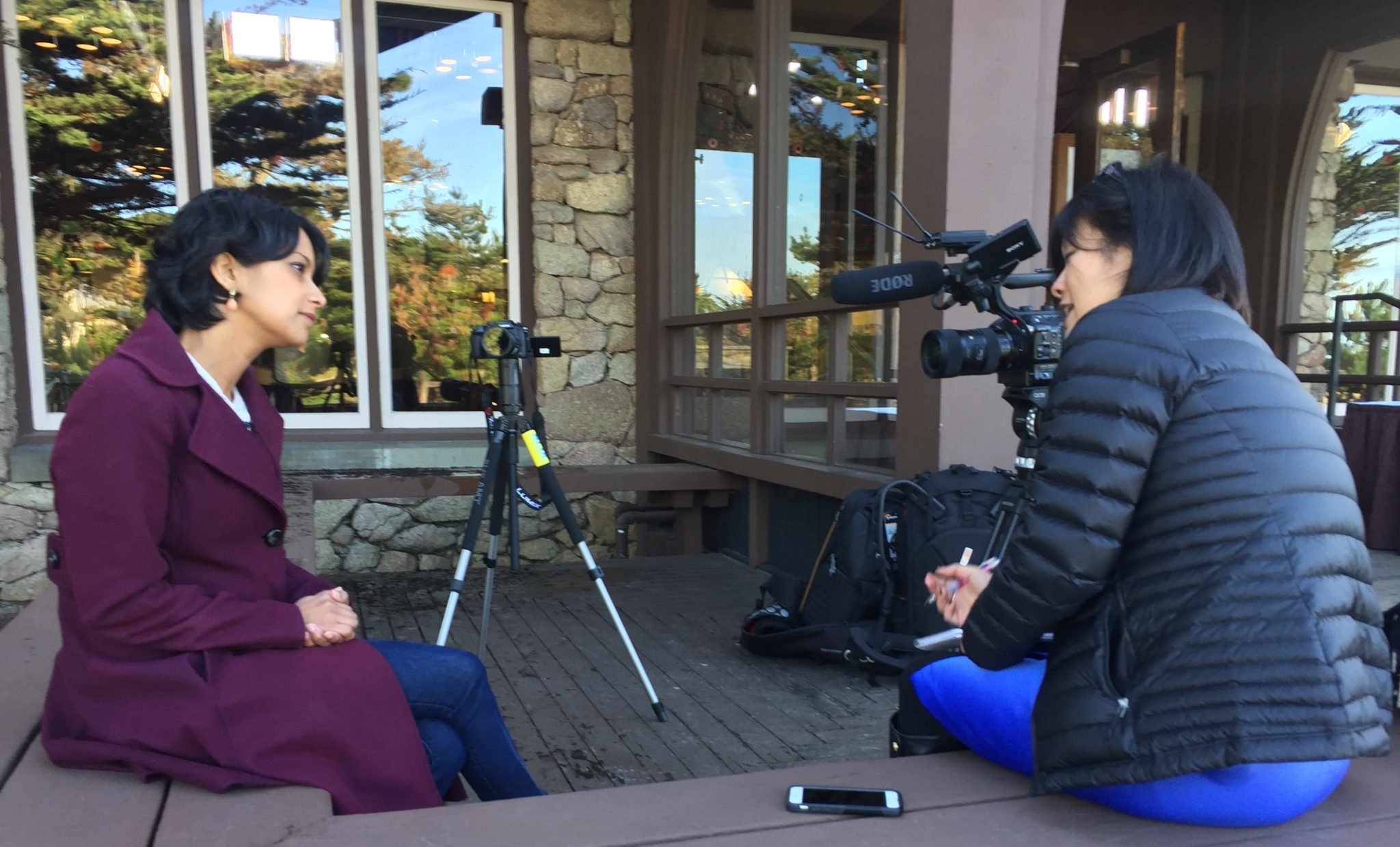What is a big city woman doing in farm country? This is the first question that friends and family asked when I shared that I’d be moving to Salinas, California. They knew me for my black boots with spiky heels and waist-hugging dresses more than mud boots and overalls.
It was 2015 and I’d been hired to cover government for the local newspaper. Salinas was known as Steinbeck Country. It is the birthplace of renowned author John Steinbeck and serves as the background for many of his works, and it was also known for big agriculture.

The Salinas Valley, which included Salinas and four neighboring cities, boasted a $9 billion ag industry that produced some 80 percent of the leafy greens consumed in the U.S. It was home to agribusinesses known for bagged salads.

I quickly learned that the region was also a growing mecca for a fast-emerging sector called agtech. With climate change coupled with significant challenges including a severe labor shortage and growing costs of doing business, growers were keen on solutions. Farmers are under pressure to feed what is forecasted to be a population of 9 billion by 2050. New innovations within technologies offered potential solutions to cost savings and efficiency.
Change was fast occurring. In downtown Salinas there was a new innovation center that housed agtech startups. Large ag companies themselves showcased new innovations whether it be a machine that cut lettuce with water pressure or sensors that captured critical data on weather and disease. The city had just started hosting a large agtech summit annually for executives, investors and entrepreneurs in the agtech space.
When I looked at the landscape of agriculture and agtech, though, I visibly noticed women, especially women of color, were often missing. Agriculture and technology remain industries that are male-dominated, especially at the decision-making level. I started asking the question, “Do you know any minority women entrepreneurs in agtech?” It often elicited silence.

But in asking the question repeatedly and doggedly, I unearthed one story and then another.
- At the Western Growers Center for Innovation and Technology (WGCIT) I met with Dennis Donohue, who pointed me to Diane Wu (no relation to me) and Poornima Parameswaran, the cofounders of Trace Genomics, a soil testing company that opened a Salinas office in 2018 which had produced a soil testing kit for analyzing soil DNA.
- I also met with Pam Marrone, the founder and then-CEO of Marrone Bio Innovations, a NASDAQ-listed company that produces bio-based pesticides, was mentoring women entrepreneurs in agtech. Marrone connected me with Miku Jha, the founder of AgShift, which at the time was developing a software similar to Quickbooks for growers. Marrone also referred me to Le Thuy Vuong, the founder of The Redmelon Company. Vuong invented a technology that extracts the oil from gac, an exotic fruit high in beta carotene. Marrone then linked me with Fatma Kaplan, the CEO and cofounder of agbiotech startup Pheronym, which uses pheromones for eco-friendly pest management solutions, including controlling parasitic roundworms called nematodes.
From this came my documentary, From Farms to Incubators, which introduced several of the women innovators and their work. The film was well received, has screened at dozens of venues including SXSW and Techonomy’s annual conference in 2019 and has served as a platform for discussion on the role that women play in this rapidly growing sector.
Why not stop right there? This question came from close family and friends who congratulated me on the film and the written series of portraits in the newspaper and said, “Ok, now you can move on to the next story.” That’s what journalists do, right?
The story tips continued to come in, often in the form of an email or phone call from someone who’d seen the film. “Have you heard about this woman?” “Have you talked to this woman?” The amount of such correspondence was growing. Were there more women in this space now, or were they just now coming out of the woodwork?’
I found myself inspired by the women I connected with. Many shared a passion and background in STEM. They were the first in their families to attain a higher degree or came from immigrant families. They all shared a passion for solving big impact problems. Despite the many roadblocks they faced from fundraising in this fledgling sector to the struggles of building a team, they continued to forge forward.
There were so many inspiring stories that by the end of 2018, I decided to extend the project to an art exhibition and a book.
Storyteller to Advocate
In November 2020, the art exhibition From Farms to Incubators: Women in Agtech Exhibition, opened at the National Steinbeck Center in Salinas. The exhibition included art pieces by artists in the Salinas Valley region inspired by the theme of celebrating women leaders in agriculture. Due to COVID, the opening was virtual and the exhibition could be seen through an 8-minute video tour. The opening featured speakers such as California Senator Anna Caballero and Frieda’s Specialty Produce CEO Karen Caplan. This was followed by an engaging panel with three women founders in agtech—Marrone, Penelope Nagel of Persistence Data Mining and Ros Harvey of The Yield.
While the pandemic was disruptive for businesses in most sectors, in some ways it brought agtech to the forefront. Issues related to food access, food insecurity and food systems fast surfaced. COVID ignited questions (often personally experienced) about where our food comes from, who grows our food and, in many ways, served as a red light warning as to the consequences we face under the auspices of climate change. Almost all of the women founders and leaders in agtech who I’d connected with continued building their businesses and innovations. Almost all reported an uptick in investment, business and overall interest in their innovation.
The story of women founders in agtech is an evolving one and are a testament to the rapid changes in our world now. Their stories are now captured in a forthcoming book.
As you can see, in unearthing one source, I found another and another, and as I write this, I am finding more women in California, across the country and around the world.
During these challenging times, I hope their stories will be an inspiration to those—especially youth—to consider opportunities in emerging sectors. Simultaneously, the road they are paving uplifts the successes of women leaders and entrepreneurs in all sectors. Get ready to be inspired.
Amy Wu is a member of the Women & Worth Community. The book From Farms to Incubators: Women Innovators Revolutionizing How Our Food Is Grown will be released on April 20, 2021 by Linden Publishing.







